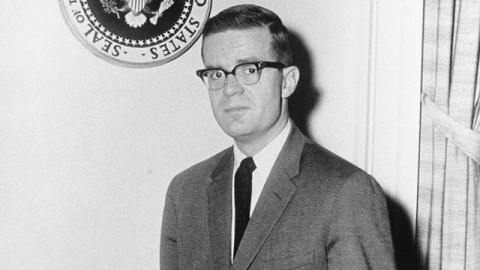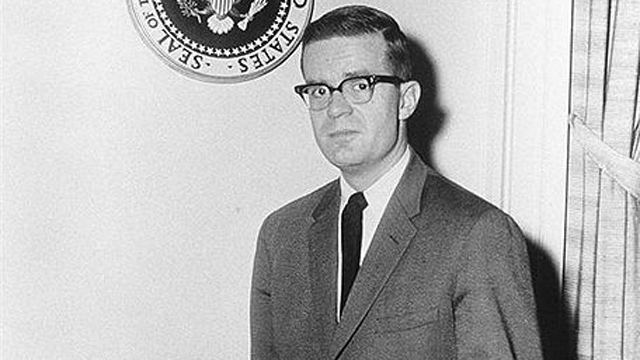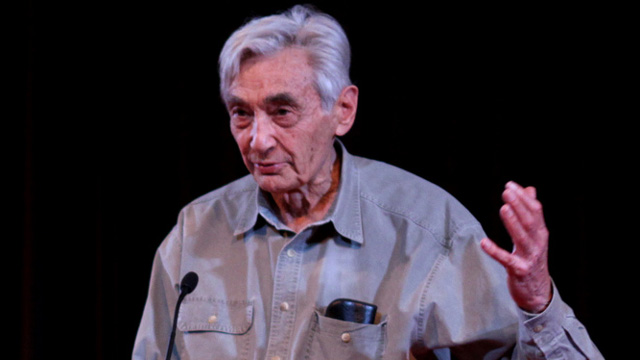JFK Speechwriter Ted Sorensen

Theodore Sorensen, who died October 31st at the age of 82, was the special counsel to President John F. Kennedy who wrote the president’s speeches and helped shape his policy. Sorensen is credited with the “passages of soaring rhetoric” that characterized Kennedy’s speeches, including the famous line: “Ask not what your country can do for you, ask what you can do for your country.”
In his 2008 Big Think interview, Sorensen talked about the process of writing Kennedy’s speeches, saying that Kennedy was pretty much the only person who would look at or edit his work: “Sometimes he would reject an entire paragraph. If I liked it, I might find the speech a couple of weeks later and I would try to sneak it back in. Sometimes he would recognize it when I did.” Sorensen said he had a great sense of satisfaction and pride from the work he did back then.
In the interview, Sorensen also spoke about how politics has changed since the 1960s, saying that the “age of eloquence” had disappeared (referring specifically to President George W. Bush), and that there are now “very few substantive ideas.”
Sorensen also addressed Kennedy’s legacy, saying that people have now realized that Kennedy’s “was an unusual presidency, and Kennedy was an unusual man.” He spoke about the botched Bay of Pigs invasion in Cuba, and the faulty intelligence that led to it—and said that the mistakes of that crisis helped inform Kennedy’s actions later during the Cuban Missile Crisis. In looking back on the fallout from the Bay of Pigs, Sorensen said that the incident showed that leaders can own up to their mistakes and still remain popular. He also talked about the delicate decision-making process that presidents are faced with when diplomacy has failed and force is necessary.




